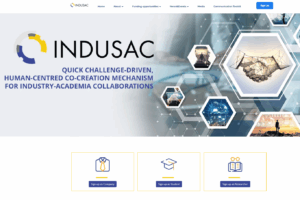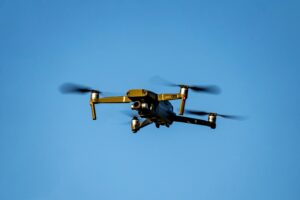
Algorithms for energy optimisation and flexibility for 5G network infrastructures
February 1, 2020
Big data and artificial intelligence for the new electricity system
February 1, 2020The Signal Processing and Communications (SPCOM) group has participated in 5GWireless, a European project in the H2020 programme. The project is one of the Marie Sklodowska Curie Innovative Training Networks (ITN) actions and is centred on the study and design of innovative architectures, wireless technologies and tools for high capacity, sustainable 5G ultra-dense cellular networks.

5GWireless is a fully integrated, multi-disciplinary network worked on by 15 early stage researchers (ESR) in ten research institutions in six European countries (Germany, the United Kingdom, Sweden, Greece, Spain and France). The network provides a cross-sectoral environment in which the researchers have been able to develop new concepts, methodologies and tools in a range of fields such as device-centred cellular architectures, ultra-dense networks and millimetre-wave communications.
Two of the researchers have undertaken their work at the UPC in two subject areas.
One of the areas is large-scale multi-antenna (MIMO) technologies (Massive MIMO) for millimetre-wave communications (above 28 GHz). The project is mainly focused on the design of hybrid (analogue/digital) low-energy consumption MIMO transceivers using simple devices, 1-bit sampling and fewer RF chains than the number of antennas (single-RF MIMO). In turn, the design takes advantage of the characteristics of the propagation channel to select antennas in order to obtain high spectral efficiency. Developments have been made for the uplink and downlink channels, and multi-user transmissions have been considered in both links.
Another area is the development of advanced analysis tools for dense networks with small cells using stochastic models. These tools are key as they can be used to simply assess configurations of the network, aggregate interference values and predict the performance of these networks without the need to undertake costly simulations with long execution times. From this perspective, these tools could be particularly attractive for operators of new generation cellular systems.
Four universities have participated in the project consortium, as well as a research centre and five private companies.
Technology
Topic
You want to know more?
Related Projects
- The Barcelona Innovative Transportation (BIT), the Research Center in Automotive and Advanced Mobility (CER-AMA) and The Future Mobility Research Hub (CARNET) research groups from the Universitat Politècnica de Catalunya - BarcelonaTech (UPC) are participating in the E-MED project, which aims to optimise energy and resource efficiency in public transport systems by addressing energy price fluctuations through smart and participatory solutions across the Mediterranean region.
- The company Friselva S.A., Corporació Alimentària Guissona (bonÀrea), together with the Food Service Cluster and inLab FIB at the Universitat Politècnica de Catalunya - BarcelonaTech (UPC), are participating in the Hydroless project, which aims to optimise water consumption in meat production plants. The project includes an innovative solution to monitor and optimise water use at bonÀrea’s plant in Guissona, as well as the design and development of a digital twin of Friselva’s facilities in Riudellots de la Selva.
- The EU-funded Quick Challenge-Driven, Human-Centred Co-Creation Mechanism for INDUStry-Academia Collaborations (INDUSAC) project has successfully developed and validated a new, human-centred, challenge-driven co-creation mechanism that connects industry with academia across Europe. Over three years of implementation, the project has supported international teams of students and researchers in tackling innovation needs directly submitted by companies. The INDUSAC project has created a dynamic community of industry-academia stakeholders focused on circularity, general sustainability, digitalisation and industry 4.0.
- A research team led by the Mobile Robotics and Artificial Intelligence Group (RAIG) of the Institute of Robotics and Industrial Informatics (IRI, CSIC-UPC) at the Universitat Politècnica de Catalunya - BarcelonaTech (UPC) is taking part in the European project TRIFFID (auTonomous Robotic aId For increasing FIrst responDers efficiency). The aim is to develop a platform to support rescue operations in emergency situations. The initiative combines advanced robotics, artificial intelligence and immersive interfaces to enhance safety and accelerate response in hazardous environments.




